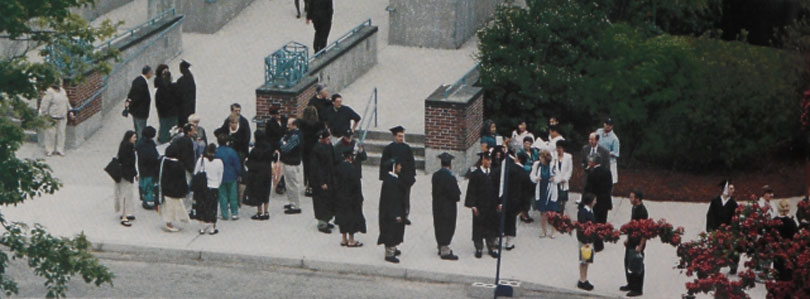An Off-the-Wall Question at the Center of College
On her Good School Hunting blog, Erika Sanzi reposts a Twitter essay by University of California Irvine law professor and author Mehrsa Baradaran in which the latter laments how culturally foreign (and expensive) the college admissions process is for a young woman who “grew up Black in a white rural town in CA”:
We’ve already paid over $1000 (even with fee waivers). I have no idea how she was ever going to pay that money or who in her life was going to help her with the 100s of essays we’ve written!
And the essay questions!!!! Columbia asks “what exhibits, lectures, theatre productions and concerts have you liked best in the last year?” I’m tempted to write “Carmen at the Metropolitan Opera– psych–my town doesn’t even have a movie theatre! …
These are minor annoying questions. The major one is “tell us what you’re most excited about coming to Stanford, etc.” She’s a first gen college student. She has no idea what Stanford is like. She has never traveled outside her town.
Here’s an off-the-wall question that I think gets to something important that we tend to skip over: If she doesn’t know what Stanford is like, why does she want to go there? Does she have any idea? If not, why apply?
The answer is obvious. You don’t have to know anything at all about Stanford, really, except that people’s eyebrows will rise if you say you attended that prestigious university.
Those folks will understand that the school is associated with academic achievement, but the reason they’ll be impressed is that it’s a ticket to the upper classes. Otherwise you’d get the same reaction if you told them you won the regional high school robotics competition, and you wouldn’t.
The point is that we’ve made college a class distinction, so of course admissions would screen for class. The problem is that we’re not honest about what college is and what it’s for. If you want to attend a social-class-screening institution, then you can’t complain about social-class-screening questions.
This gets to something that seems not quite genuine about Baradaran’s critique. In an era that privileges “diversity” and in which the managers of the SAT test want to apply “adversity scores” to students’ tests, a “homeless” girl who grew up “Black in a white rural town” with a 4.0 GPA and a sport is not going to have any trouble getting into an elite school. We know this because she already has a UC Irvine law professor and author helping her and publishing Tweet storms to display her charitable efforts.
The same system that secured Baradaran’s application guidance will open other doors, too. And across rural America there are other young adults with 4.0 GPAs and a sport who will not find assistance, because helping them doesn’t align as well with a fashionable social cause. They’re the people that the system is trying to screen out, and again, Baradaran is part of that system.
That isn’t actually a complaint, but a call to be honest about the system, what it’s designed to do, and how it acts. Admission to elite colleges is a mechanism for social screening, and America’s current elite has prioritized changing the makeup of its ranks. That project will have winners and losers, which is how these things go, I guess, but touting one of the winners as evidence of the system’s injustice misses something important.
Postscript: As a side note, Baradaran also describes the student as “homeless,” by which she means “she’s living with a friend’s family.” That’s not really “homeless” as most people understand the term. It’s actually a great indication of how important family and social networks are.




